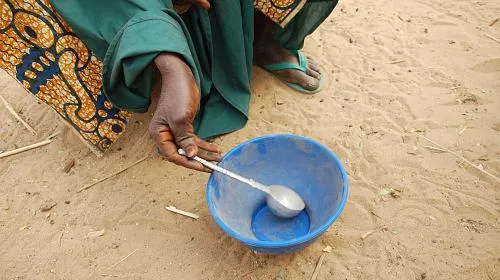CARE applauds the House and Senate Farm Bill conferees, under the leadership of Senate Chairwoman Debbie Stabenow (D-MI), Ranking Member Cochran (R-MS), House Chairman Lucas (R-OK) and Ranking Member Peterson (D-MN)), for including significant, common-sense, lifesaving reforms to the U.S. international food assistance program.
“By allowing greater flexibility for the U.S. to respond to global food emergencies in a smarter, more efficient manner, these provisions will enable us to reach many more hungry people around the world,” said Helene D. Gayle, President and CEO of CARE USA.
“The ongoing crisis in Syria and recent disaster in the Philippines are reminders of the urgent need for a food assistance program that is able to reach people quickly and cost-efficiently.”
The food aid provisions in the Farm Bill build on the momentum started in the FY14 omnibus bill which gave greater flexibility in how the U.S. responds to a food emergency by reducing the need for monetization, the current program in which food aid is purchased in the U.S. and shipped overseas to fund development programs. Read more on CARE’s views on the FY14 omnibus bill here.
For many years, CARE was a strong partner of the U.S. government in providing food aid globally. But CARE recognized that the system was flawed; food aid can be slow and costly, and the process of monetization was inefficient, often distorting and hindering local markets. Seven years ago, CARE made the decision to phase out of open-market monetization of commodities. As of 2009, CARE ended the open-market sale of U.S. food aid to generate cash for our development and emergency programs, also known as monetization.
Specifically, the food aid reform provisions in the Farm Bill would:
Establish a permanent local and regional procurement program authorized at $80 million annually to enable the U.S. Department of Agriculture to purchase food closer to an emergency, when appropriate.
Increases the share of Title II (Food for Peace) funds that can be used to cover non-commodity expenses of food aid programs, up to 20 percent from its current cap of 13 percent, thus decreasing the need to monetize food aid commodities and improving flexibility for programs.
Requires the U.S. Agency for International Development to monitor recovery rates for monetization transactions performed under food aid programs, and report to Congress annually on transactions that fail to generate at least a 70 percent recovery rate.
CARE’s decades of work in emergency food assistance has shown us that the current U.S. food aid programs can be made far more efficient and effective in meeting the needs of women, men and children during a crisis. The reforms included in the Farm Bill conference are an important step towards improving the U.S. food aid program, including ending the harmful practice of monetization.
For media interviews on this topic please contact Nicole Harris, CARE’s media relations director, at 404-735-0871.

